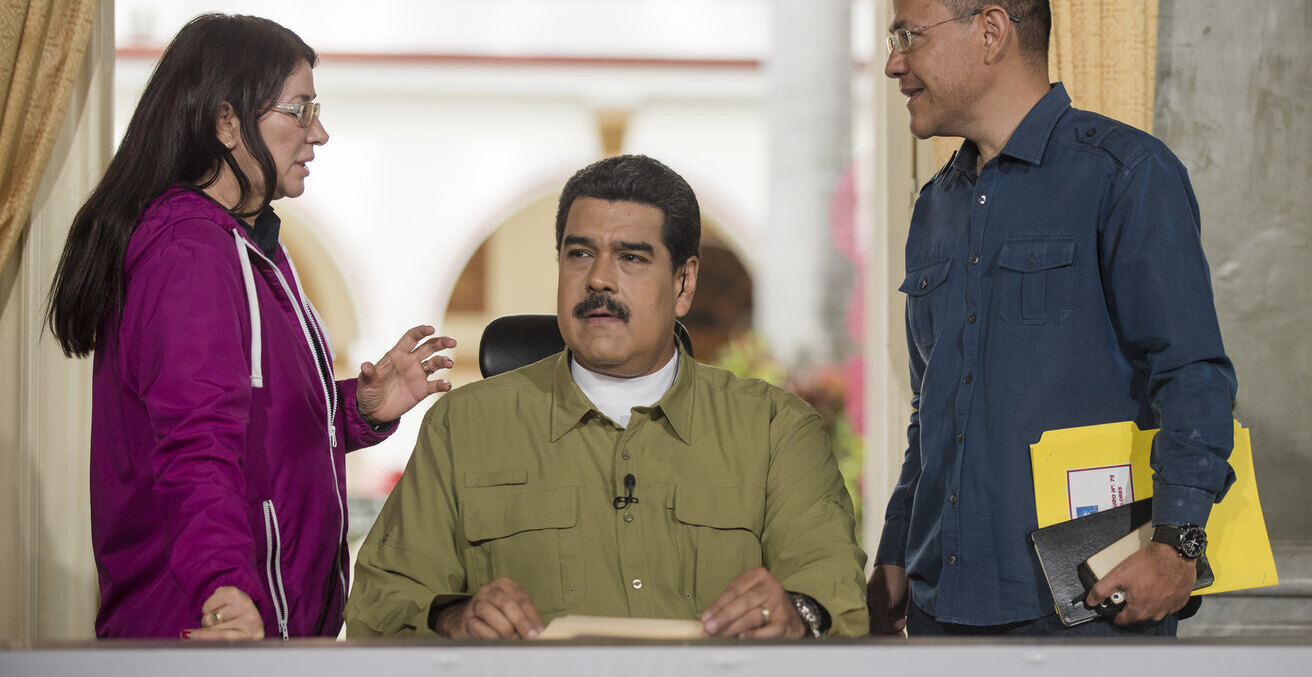A Rare Opportunity for the Normalisation of US-Venezuela Relations

It is disappointing that the current opportunity for the normalisation of US-Venezuelan relations is linked to the dramatic Russian invasion of Ukraine. Yet it is an opportunity that, if realised, will only bring benefits to both nations.
Even an experienced politician like Joe Biden must feel at a loss these days. His climb to the summit of the Democratic party was trying, his subsequent electoral confrontation with Donald Trump socially polarising. Any illusions he might have held about such polarisation diminishing once he was elected vanished with the infamous assault on the Capitol if January 2021. Given this context, Biden surely anticipated an eventful presidential term when he finally took office. Yet nothing could have prepared him for what was still to come.
The geopolitical stage transmits high-voltage energies into the US domestic arena, with unpredictable outcomes. In the aftermath of Russia’s invasion of Ukraine, Biden evidently thinks that this voltage could ignite social discontent that, compromising the chances of Democrat incumbents in the forthcoming November 2022 US elections, could ruin, and even cut short, his own presidency. Biden’s recent reconsideration of the hardline approach to Venezuela can only be adequately understood against this backdrop.
In March, a delegation of US officials met with Nicolás Maduro in Miraflores, the Venezuelan presidential palace. This meeting was extraordinary on many levels. For starters, Washington does not officially recognise Maduro’s government — it hasn’t since 2019, when President Trump orchestrated an international effort to isolate it. Furthermore, despite the recent high-profile diplomatic talk in Miraflores, Biden’s administration insists that it does not recognise Maduro’s government. In the version of the story that Washington officials bring into the public record, they continue to uphold the “interim” presidency of Juan Guaidó.
Second, the draconian sanctions imposed upon Venezuela during the Trump administration remain in place. Because of these sanctions, Venezuelan state assets abroad are locked away from Maduro’s government, and the operations of the national oil industry remain severely constrained. In addition, the sanctions have condemned the Venezuelan financial system to a dysfunctionality that of course complicates economic recovery.
Third, the President Maduro with whom US officials met in Caracas remains, in the eyes of the US, a criminal. Maduro was charged with a plethora of criminal charges in US courts two years ago, the result of a legal process aired with pomposity with the backing of then US Attorney General William Barr.
In short, the recent US-Venezuelan diplomatic contacts constitute one of those examples that international relations lecturers should only use in class once students have finalised their cores on the legal principles of international law. Discussing a case like this in a first-year unit could make students averse to any normative frame of analysis during the rest of their lives — too much realpolitik in one dose.
The presence of officials in Miraflores responds to a strategy of political survival. Biden’s administration won’t last long if the US national economy gets into a cycle that puts additional pressure on low- and medium-income citizens. For instance, a hike of transport costs affecting families and business, basic consumer goods increasing in price, or a temporary slowdown of trade or industrial production, could lead to an increase in unemployment, and a lost election in 2024. That is, if Biden’s administration is not compromised even earlier by the results of the House of Representatives and Senate elections of 2022. Any combination of these circumstances is indeed possible if the international markets of natural resources and primary goods are recast under the new geopolitical conditions that Russia’s invasion of Ukraine delineate.
Biden is aware of this, and he also knows that a sector of Trump supporters won’t need much of an excuse to resume open calls for mass rebellion against the government. Indeed the “Freedom Convoys” that recently dotted the state indicate they may have never stopped. Moreover, Biden knows that even among Democrat sympathisers, he won’t find much support if they again feel the turn of the screw in their domestic budgets.
The knock on Maduro’s door is evidence that Biden takes this scenario seriously. It also shows that Biden is manoeuvring to assist US corporations in an increasingly uncertain international scenario ‒ among them, oil firms. US oil companies have wanted to resume investments and commercial deals in Venezuela for a while. For Biden’s administration, it was one thing to contain the lobbying of these companies a year ago in the name of political principles. It is quite another to contain that lobbying now, in a geopolitical scenario that, in addition to promising particularly high returns for profit-driven energy corporations, might set new obstacles for US firms beyond traditional areas of influence like Latin America. Venezuelan oil is too tempting, too close to home for these firms for Biden to ignore it.
Of course, no one knows what might come out of these initial contacts between Biden’s and Maduro’s governments. The bilateral relationship is too messy at this stage. But the push of realpolitik might help bring a degree of normalisation to bilateral relations, and even a partial lifting of the sanctions on Venezuela. This could bring an end to the unjustifiable collective punishment that sanctions inflict indirectly on millions of Venezuelans of all political inclinations.
The current scenario could also influence some ongoing transformations in the Venezuelan political arena. The democratic sector of Venezuela’s Opposition will start to receive more attention, and probably even institutional recognition and support, from US and other international leaders. So far, this has been a neglected sector of the Venezuelan society, another victim of the failed strategy of regime change led by the US.
In turn, the demise of Guaidó is consummated even if he maintains official recognition from the US and other countries. The radical sector of the Opposition — which lacks any organic presence in Venezuelan institutions and society — will soon resume the search for an alternative face to articulate their strategy to oust Maduro through non-electoral means.
It is disappointing that the current opportunity for the normalisation of US-Venezuelan relations is linked to the dramatic Russian invasion of Ukraine. But it is an opportunity in both nations’ interests, and one that may finally allow Venezuela to move forward.
Dr Luis Angosto-Ferrández is a senior lecturer in the departments of Anthropology and Latin American Studies at the University of Sydney. He is the author of Venezuela Reframed (Zed, 2015), editor of Democracy, Revolution and Geopolitics in Latin America (Routledge, 2013), and contributor to Latin American Extractivism (Rowman & Littlefield, 2021).
This article is published under a Creative Commons License and may be republished with attribution.





